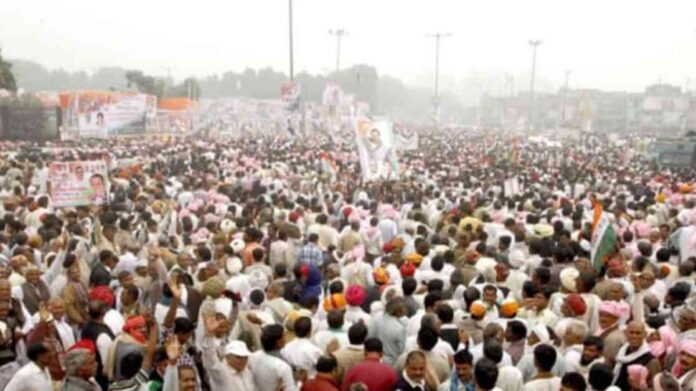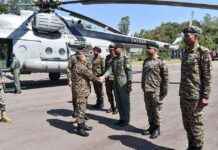The Trump administration recently imposed sanctions on a prominent Rwandan official, James Kabarebe, for his involvement in supporting the M23 rebel movement in the Democratic Republic of Congo. Kabarebe, who serves as Rwanda’s minister of state for regional integration and is a former general in the country’s defense force, has been accused of orchestrating support for M23 rebels and managing revenue generated from the DRC’s mineral resources. The US Treasury’s Office of Foreign Assets Control made the announcement, sparking a contentious response from the Rwandan government, which denied any involvement with the rebels or having troops in the region.
Rwanda’s government spokesperson, Yolande Makolo, expressed dismay at the sanctions, calling them unjustified and urging international support for ongoing regional efforts towards a peaceful resolution. Makolo emphasized that sanctions alone cannot bring an end to the longstanding conflict in the eastern DRC, highlighting the complex dynamics at play in the region. This development comes amid escalating tensions as the Rwanda-backed M23 rebels have seized control of two major cities in eastern Congo, resulting in a humanitarian crisis with thousands dead and nearly a million people displaced.
The US also targeted Lawrence Kanyuka, a spokesperson for M23, with sanctions in a bid to hold accountable key figures enabling destabilizing activities in the region. Acting Under Secretary of the Treasury for Terrorism and Financial Intelligence, Bradley T. Smith, underscored the US commitment to promoting a peaceful resolution to the conflict, emphasizing the importance of addressing the root causes of the violence. The move reflects a broader effort to address the complex geopolitical landscape in the Great Lakes region of Africa and prevent further escalation of the conflict.
Challenges of Regional Conflict
The conflict in the eastern DRC has deep historical roots, fueled by a complex web of political, economic, and ethnic factors that have long plagued the region. The presence of armed groups, competing interests of neighboring countries, and the exploitation of natural resources have all contributed to the protracted violence and instability in the area. The recent resurgence of the M23 rebellion has reignited fears of a regional war, drawing international attention to the urgent need for a sustainable peace process.
Expert analysts warn that without a comprehensive approach addressing the underlying grievances and power dynamics at play, the cycle of violence is likely to persist. Efforts to hold key actors accountable, such as Kabarebe and Kanyuka, are seen as a step towards addressing the root causes of the conflict and promoting accountability for human rights violations. International pressure on all parties involved to engage in dialogue and negotiation is essential to prevent further bloodshed and facilitate a lasting resolution.
Path to Peace and Reconciliation
As the international community grapples with the complexities of the conflict in the DRC, there is a growing recognition of the need for a multifaceted approach that addresses both immediate security concerns and long-term stability. Regional initiatives, such as the African Union’s Peace and Security Council and the International Conference on the Great Lakes Region, play a crucial role in facilitating dialogue and mediation among conflicting parties.
Civil society organizations, local communities, and grassroots peacebuilding efforts also have a vital role to play in promoting reconciliation and sustainable peace in the region. By amplifying the voices of those affected by the conflict and fostering inclusive dialogue, these initiatives can help build trust, bridge divides, and lay the groundwork for a peaceful coexistence. Ultimately, a holistic approach that combines political, economic, and social strategies is essential to addressing the root causes of the conflict and forging a path towards lasting peace in the Great Lakes region.
In conclusion, the sanctions imposed on key Rwandan officials and M23 leaders signal a renewed international effort to address the conflict in the DRC and promote accountability for human rights abuses. The road to peace and reconciliation in the region remains challenging, but with sustained diplomatic engagement, multilateral cooperation, and a commitment to addressing the root causes of the conflict, there is hope for a brighter future for the people of the Great Lakes region.

















